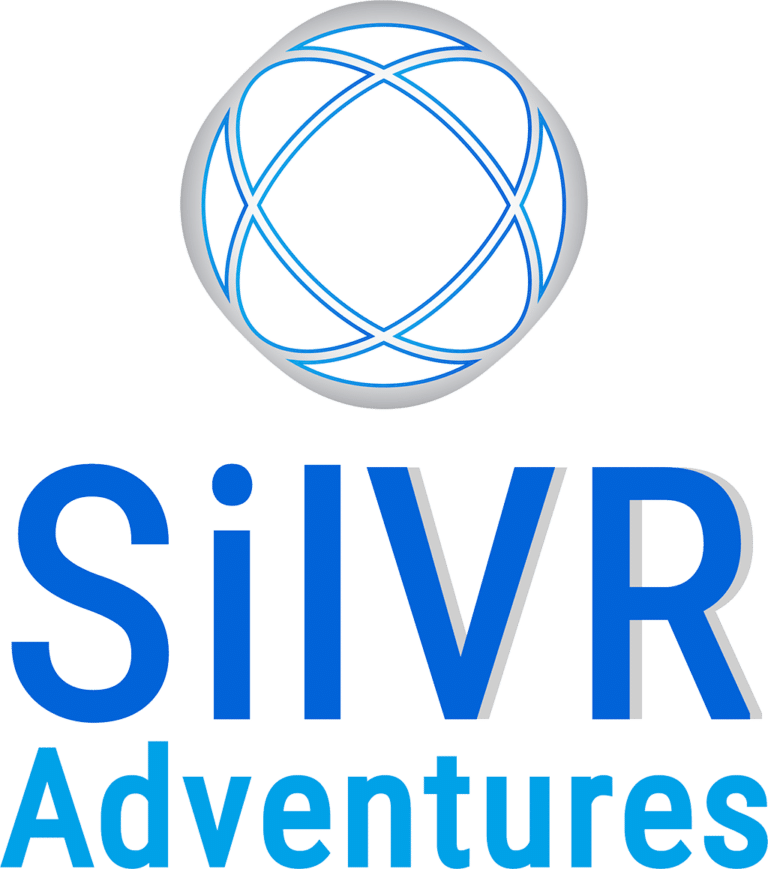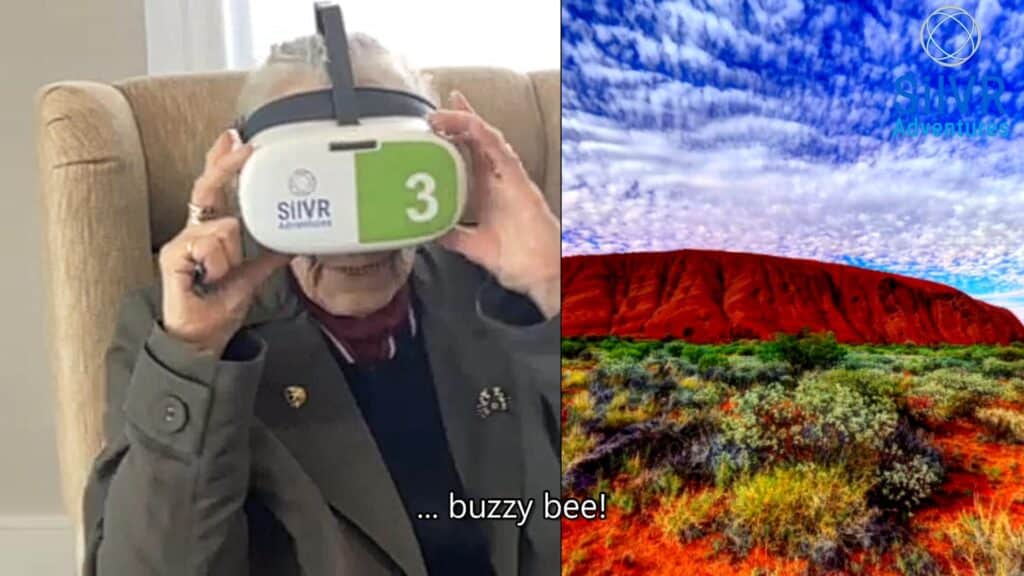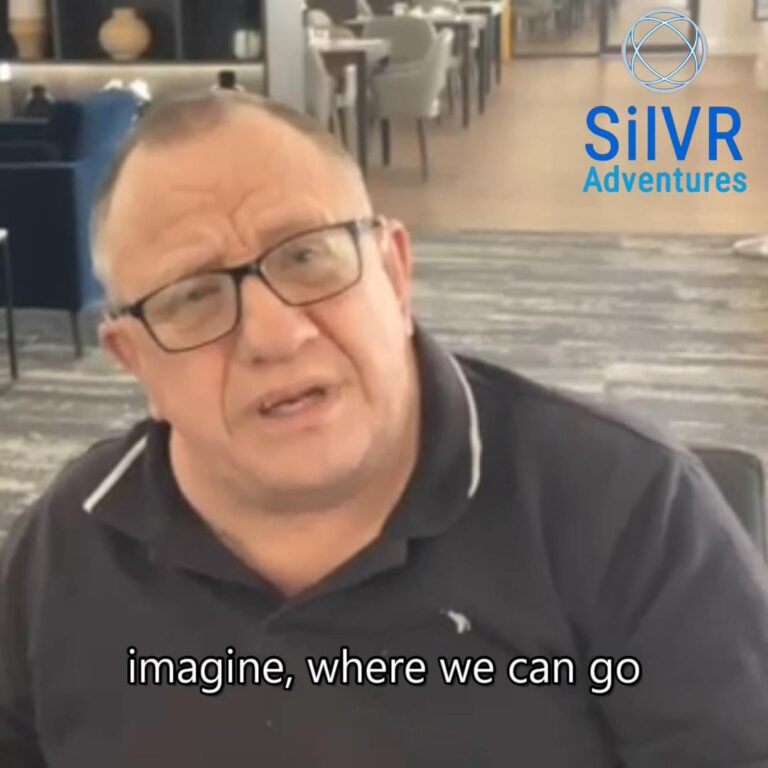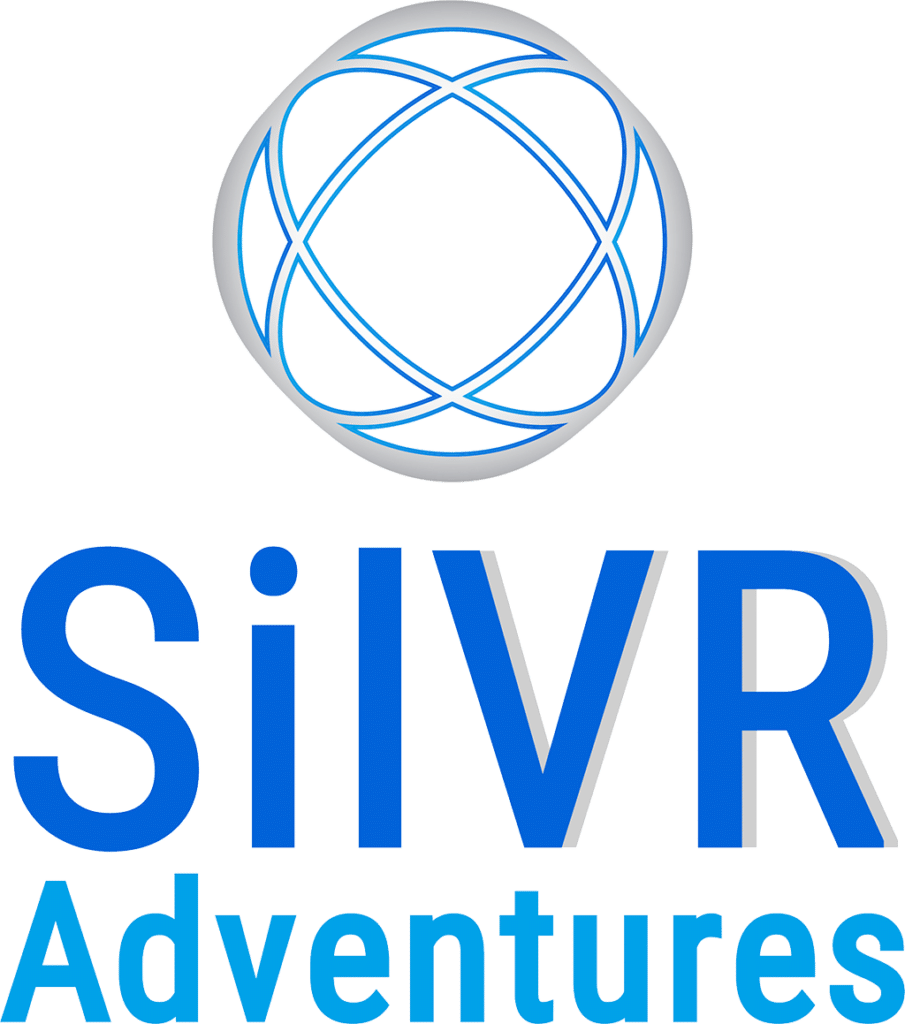We recently had the privilege of engaging in a conversation with Clare and Suzannah from Signature Care in Officer, an Australian family-owned business deeply committed to a person-centred approach to aged care. Having successfully implemented SilVR Adventures’ VR in their residence for over three months, we promptly delved into the multitude of benefits they and their team have experienced so far.
Clare, who has a Master’s degree in Gerontology and is passionate about the clients she has in her care, was openly candid about her apprehensions at the very start. “I was quite dubious about it. I’d seen VR at conferences and didn’t understand how it could be any good for people living with moderate to severe dementia in aged care given the invasive appearance of the headset. But then people that had used it were positive and I thought, we’ll give it a go and see what happens.”
The well-being team, managed by Suzannah, had prior exposure to VR and were receptive and excited about the idea of bringing in this new technology to residents.
Three months later, how has the perspective now changed?
“Seeing the reaction of residents and staff, I am blown away and my thoughts have completely changed. It is unreal. We have family members who take time to write us emails with positive feedback, one specific instance being to say that their father had been almost non-verbal for a while, given his decline in his cognitive abilities, but using VR, he’s suddenly very chatty and full of beans. He went back to the UK in an experience and recognised places he had been before, and he’s suddenly talking about soccer, and quite animated after the session, chatting away.”
"That’s what I would say is the most successful outcome; here is this man, able to reconnect with his family when they thought they had lost him.”
Signature Care is a company that cares deeply for their residents, and apparent in the spaces they create to enable a full virtual community experience – adding sounds and smells to enhance immersive VR sessions.
“We spoke about it just today,” shares Suzannah, “when the residents are on the beach, they relay they can feel the sand under their feet, VR really does awaken other senses. One of the residents who doesn’t have any issues with cognitive impairments is in an electric wheelchair, and they fully spin around to take in all the views.”
Clare and Suzannah have taken everything into consideration – including designing a sensory room with colour schemes, scents, and tactile elements to add to VR experiences – even embracing the beauty in specific cultures. During a recent VR trip to India, they ensured the rich aroma of certain spices were made available during the session.
One of the most amazing stories highlighting the immersive power of VR, was about a man who was so moved on his travels back to a cathedral in Italy that he brought the room to tears with his beautiful singing of a classical song.
“Watching the residents engage in VR is special, because they are so immersed in the experience, they’re talking about what they’re seeing and then afterwards, when the headsets come off, they have full conversations. They’re so animated about what they’ve seen together. For people who have not had a cognisant conversation for a while, to have a meaningful conversation, that makes sense to them with others, to be understood, it is quite emotional.”
But it isn’t just reconnecting with families and budding new friendships based on a shared experience that Clare and her team find intriguing. On a trip to Uluru, they noticed that residents who experienced some levels of cognitive impairments were showing an unusual ability to focus on details they otherwise may have not been able to anymore.
“One of the residents was in Uluru and kept asking about a bee, buzzing in her ear. You couldn’t really see the bumblebee, but she could hear it and she was so focused on it. With studies we have done regarding Dementia, we understand that things are quite simple when it comes to dementia – shapes, colours etc. Details are not really something that they pick up on, but in VR, they notice details like that buzzing bee as it awakens other senses.
The things they would not usually recognise, like the sand. For them to remember and feel sand on their feet, you have that memory from the last time you were on a beach, that’s incredibly powerful.”
With the home described as “super users” due to their high usage of the program, Clare continued to share how appreciative she is of the SilVR solution and is now advocating for usage of this technology in every dementia care setting.
“It has been phenomenal. We are super users because Suzannah and her team have recognized the strengths. They have built a profile for every member of the community, it’s easily accessible and they can tailor VR experiences to truly improve the quality of resident’s lives and reconnect them with their loved ones. Anyone can pick up their file, see where they grew up, for example in London and take them there, and give them that experience. We are even able to bring back date nights! For instance, when it’s an anniversary, for that VR session, we invite the partner, and they are just back to being husband and wife again.”
The benefits of VR in Signature care extend far beyond the residents – Clare also shared how seeing the community thrive through sessions has driven many team members to push for a spot to work in their dementia care unit; something that is unheard of because of the extra challenges this role can bring.
“We have created such wonderful spaces for our dementia wards that the staff often ask if they can work there. It has boosted workforce morale and uplifted spirits to see how rewarding it is, despite it being more demanding. It’s just become such a wonderful place to be, and that, is why we will always be super users!”





